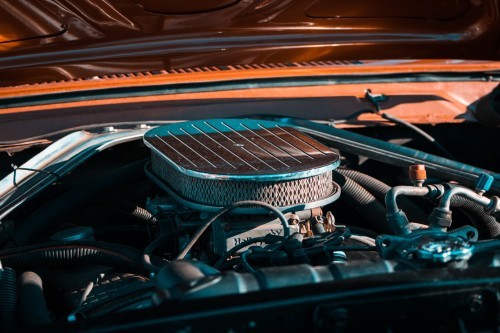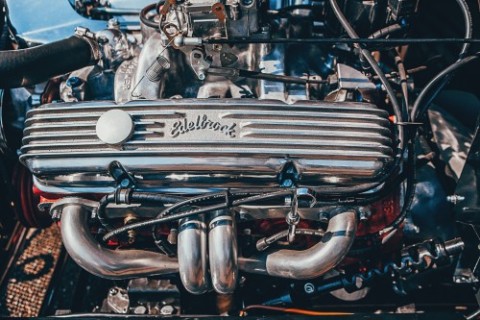An automatic transmission’s optimal operation and lifetime depend heavily on the transmission fluids used in it. They prevent wear and tear by acting as a lubricant, coolant, and hydraulic fluid to provide effortless gear changes, lessened friction, and smoother gear shifts. The automobile industry has taken notice of two common gearbox fluid kinds, Mercon V and Mercon LV, for their distinct features and uses. We examine the traits, distinctions, and factors of the gearbox fluids Mercon V and Mercon LV in this comparison analysis.
Viscosity and Temperature Performance:
Viscosity is an essential consideration for gearbox fluids since it has an impact on how well they flow and lubricate at various temperatures. Mercon V is better suited for older gearboxes or cars with greater operating temperatures since it often has a higher viscosity than Mercon LV. Because of its reduced viscosity, Mercon LV is perfect for modern automobiles that need to shift more smoothly and efficiently, especially in colder areas.
Compatibility and Usage:
Although Mercon V and Mercon LV have differing compatibility and usage requirements, they are both primarily intended for Ford automobiles. In some power steering systems and vintage Ford gearboxes, Mercon V is frequently employed. Mercon LV, on the other hand, is frequently used in conjunction with car models and model years and is recommended for newer Ford gearboxes. It is critical to refer to the owner’s handbook or contact the manufacturer to find out the proper gearbox fluid for a particular vehicle.
Fluid Change Intervals:
Depending on the vehicle and use, Mercon V and Mercon LV have different suggested fluid replacement intervals. Due to its improved durability and performance features, Mercon LV is typically used in newer cars that may have longer fluid replacement intervals. To ensure the gearbox performs at its best and lasts as long as possible, it is essential to follow the manufacturer’s suggested service intervals.
Aftermarket Alternatives and Cross-Compatibility:
Despite the fact that Mercon V and Mercon LV are both exclusive Ford compositions, there are aftermarket substitutes that promise to be compatible with these fluids. It is crucial to use caution when thinking about aftermarket upgrades and to make sure they adhere to the requirements specified in the owner’s handbook of the vehicle.
Mercon V: A Classic Choice:
Mercon V has a long history of involvement in the automatic gearbox fluid industry. It was first made available by Ford in the late 1990s, and several other autos with automatic gearboxes utilized it. This fluid is renowned for its broad range of compatibility and performs admirably with a variety of gearbox types, including more traditional ones. A combination of traditional and synthetic base oils is used to create Mercon V, and it also has additives to increase its resistance to heat, oxidation, and wear.
Mercon LV: The Next Generation Fluid:
On the other hand, Mercon LV is a more recent formulation that Ford devised to address the changing technology of contemporary gearboxes. Its name, “Mercon Low Viscosity,” emphasizes the product’s thinner consistency compared to its forerunner. In gearboxes that demand a lower viscosity fluid, Mercon LV is made to offer higher fuel economy and smoother shifts. To fulfill the exacting needs of contemporary automatic gearboxes, this fluid is synthetic and uses innovative base oils and a complex additive package.

Key Differences:
Viscosity:
The viscosity of Mercon V and Mercon LV is one of the most obvious variances between them. Due to Mercon V’s increased viscosity, older gearbox systems benefit from a thicker oil coating. Mercon LV, in contrast, has a lower viscosity, which makes it suited for more recent transmissions that run with tighter tolerances and need a fluid that flows more readily.
Compatibility:
Older cars that were made to utilize Dexron/Mercon fluids are compatible with a wider variety of automobiles thanks to Mercon V. Older automobiles that need a thicker fluid may not be suited for Mercon LV because it was designed primarily for current gearboxes.
Performance:
Due to its reduced viscosity, Mercon LV delivers better fuel economy and smoother shifting. Additionally, it offers improved heat resistance, which is crucial for protecting contemporary transmissions from damage as they frequently work at higher temperatures.
Transmission Design:
Traditional automatic transmissions frequently employ Mercon V, whereas more modern transmissions, including those with continuously variable transmissions (CVTs) and dual-clutch transmissions (DCTs), frequently use Mercon LV.
Choosing the Right ATF:
Considering the gearbox type, model year, and manufacturer’s recommendations can help you choose the right ATF for your car. Think about the following actions before making your decision:
Consult Your Vehicle Manual:
To find out the suggested ATF for your gearbox, see your owner’s handbook or speak to a qualified mechanic.
Model Year and Transmission Type:
Determine the model year of your car as well as the type of gearbox it has (4-speed, 5-speed, 6-speed, 8-speed, etc.). This information will direct you to the appropriate ATF.
Manufacturer Specifications:
Make sure the ATF you choose, whether Mercon V or Mercon LV, complies with the requirements set forth by the car manufacturer.
Consider Usage and Driving Conditions:
Choose an ATF that provides essential wear prevention and thermal stability if you are hauling high loads or putting your car through difficult driving conditions.

Composition and Formulation:
Ford created both Mercon V and Mercon LV gearbox fluids, although they have different chemical make-ups. A combination of conventional and synthetic base oils was used to create the synthetic blend fluid known as Mercon V. It is intended to increase fluid life, temperature resistance, and oxidation stability. Mercon LV (Low Viscosity), on the other hand, is a fully synthetic fluid with a more sophisticated formulation that offers improved performance characteristics and increased service life.
Service Life and Maintenance:
Compared to Mercon LV, Mercon V typically has a shorter service life. To ensure peak performance, Mercon V often needs more regular fluid changes—every 30,000 to 50,000 miles (about 80467.2 km). On the other hand, Mercon LV provides longer service intervals, frequently up to 100,000 miles (about 160934.4 km), before fluid replacement is advised. Long-term cost reductions and a reduction in maintenance requirements may result from this.
Environmental Considerations:
Gearbox fluids contribute to pollution reduction and increased efficiency as cars become more environmentally friendly and fuel-efficient. The low viscosity of Mercon LV makes shifting more effortless and may improve fuel efficiency, which lowers greenhouse gas emissions.
Frequently Asked Questions (FAQs):
Which automobiles utilize Mercon LV?
Mercon LV is used in some Ford vehicles, including models like the Focus, Fiesta, Fusion, Escape, and Transit Connect.
What distinguishes Mercon V from LV power steering fluid?
Transmission fluids, not power steering fluids, are Mercon V and Mercon LV. Use the proper fluid, such as Motor craft MERCON® LV Power Steering Fluid, for power steering fluid in Ford cars.
What kind of fluid is Mercon V?
Mercon V is an automatic gearbox fluid (ATF) that is used in particular Ford automobiles to ensure optimal gearbox performance and seamless shifting.
Conclusion:
In conclusion, a number of variables, such as the age of the vehicle, the driving environment, and manufacturer recommendations, affect the decision between Mercon V and Mercon LV gearbox fluids. While Mercon LV was created for more recent automobiles with an emphasis on fuel efficiency and easier shifting, Mercon V is appropriate for older gearboxes and applications needing higher viscosity. The best gearbox fluid for a given situation should always be chosen by car owners after consulting their owner’s handbook or consulting a specialist. To ensure the durability and ideal performance of the vehicle’s gearbox system, proper maintenance and the usage of the right gearbox fluid are essential.

